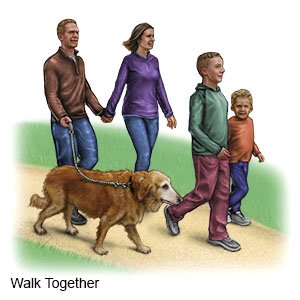Conduct Disorder in Children
Medically reviewed by Drugs.com. Last updated on Aug 4, 2025.
Conduct disorder means a child's behavior is physically and verbally aggressive toward other people or property. A child with conduct disorder acts out in a way that is not appropriate for his or her age. The behaviors are repetitive and often start at a young age and worsen over time. A child with conduct disorder often has other mental health conditions, such as depression, ADHD, or learning disabilities. Conduct disorder is more common in boys than in girls.
DISCHARGE INSTRUCTIONS:
Call your local emergency number (911 in the US) if:
- Your child talks about hurting himself or herself, or others.
Call your child's doctor if:
- Your child's aggression or other behaviors do not improve, even with treatment.
- Your child does not sleep well or sleeps more than usual.
- Your child will not eat or eats more than usual.
- You have questions or concerns about your child's condition or care.
Medicines:
Your child may need any of the following:
- Antidepressant medicine is given to treat depression and improve your child's mood.
- Antipsychotic medicine is given to decrease aggressive behavior. The medicine may also keep your child from hurting himself or herself.
- Give your child's medicine as directed. Contact your child's healthcare provider if you think the medicine is not working as expected. Tell the provider if your child is allergic to any medicine. Keep a current list of the medicines, vitamins, and herbs your child takes. Include the amounts, and when, how, and why they are taken. Bring the list or the medicines in their containers to follow-up visits. Carry your child's medicine list with you in case of an emergency.
Create a structured environment for your child:
- Do not allow exceptions to the rules. Set limits and tell your child what you expect from him or her. Keep your child on a schedule. Set bed and wake times, study times, and free time. Make sure everyone has your child follow the same rules. This includes babysitters, family members, and teachers.
- Give your child positive feedback when earned. Positive words or rewards when your child follows rules will help promote good behaviors.
- Have your child keep a diary. The diary can be used to write down feelings and reactions to situations. Your child can begin to better understand his or her own behavior and how to handle stressful situations.
- Have your child take a time out for negative behavior. This will allow your child time to relax and rethink his or her behavior.
- Monitor your child for alcohol and drug use. Talk to your child's healthcare provider if you think your child is using alcohol or drugs.
- Talk to your child about safe sex. This may help decrease the risk for sexually transmitted infections, such as HIV.
- Help your child create healthy habits. Healthy habits include regular exercise, nutritious food, and regular sleep. Too little sleep, a lack of physical activity, or poor nutrition can trigger or worsen behavior problems. Have your child go to sleep and wake up at the same times each day. Offer healthy foods, such as vegetables, fruits, lean meats, whole-grain breads, and low-fat dairy products. Limit foods high in sugar, fat, or salt. Encourage your child to get at least 1 hour of physical activity every day.

Follow up with your child's doctor as directed:
Write down your questions so you remember to ask them during your visits.
For support and more information:
- American Academy of Child and Adolescent Psychiatry
3615 Wisconsin Avenue NW
Washington , DC 20016
Phone: 1- 202 - 966-7300
Web Address: http://www.aacap.org
- National Institute of Mental Health (NIMH), Office of Science Policy, Planning, and Communications
6001 Executive Boulevard, Room 6200, MSC 9663
Bethesda , MD 20892-9663
Phone: 1- 301 - 443-4513
Phone: 1- 866 - 615-6464
Web Address: http://www.nimh.nih.gov/
© Copyright Merative 2025 Information is for End User's use only and may not be sold, redistributed or otherwise used for commercial purposes.
The above information is an educational aid only. It is not intended as medical advice for individual conditions or treatments. Talk to your doctor, nurse or pharmacist before following any medical regimen to see if it is safe and effective for you.
Learn more about Conduct Disorder
Care guides
Further information
Always consult your healthcare provider to ensure the information displayed on this page applies to your personal circumstances.
